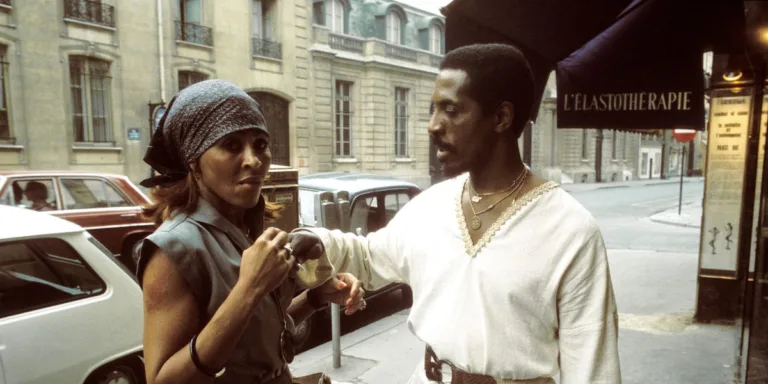Linda Lovelace was a name synonymous with the adult film industry in the 1970s. Her star turn in the groundbreaking movie “Deep Throat” Catapulted Her To Fame, making her a household name and a cultural icon of that era. While she achieved success and wealth within the industry, her story is ultimately one of complex layers and profound personal struggles.
Lovelace’s life took a dark turn when she met Chuck Traynor, Who Became Her First Husband. He allegedly forced her into pornography Against Her Will, exploiting her talent and controlling her Every Move. This period of her life left Deep Scars, shaping her perspective on the industry and its impact on individuals.
After escaping Traynor’s control, Lovelace tried to carve a new path for herself, seeking legitimacy in mainstream acting. However, she faced significant challenges breaking free from the image that had become so deeply associated with her name. Despite these hurdles, she became a vocal critic of the porn industry, sharing her harrowing experiences and advocating for reform. Lovelace’s story reminds us that fame and fortune don’T Always Equate To Happiness, and that even those who achieve great success can be victims of exploitation and abuse.
Deep Throat & The Rise To Fame
Linda Lovelace’s life took a dramatic turn in 1972 when she landed the lead role in “Deep Throat,” an adult film that would forever Change Her Destiny. The movie became a sensation, breaking box office records and catapulting Lovelace to international fame.
“Deep Throat” was groundbreaking for its time, pushing boundaries and sparking conversations about sexuality and censorship. Lovelace’s performance was considered captivating and raw, contributing to the film’s Immense Popularity. While some viewed her as a symbol of liberation and female empowerment, others criticized her involvement in the Adult Film Industry.
Despite the controversy surrounding “Deep Throat,” Lovelace became a cultural phenomenon. Her image appeared on everything from Magazines To Merchandise, solidifying her place as a recognizable figure of the 1970s. However, this newfound fame came at a Personal Cost, as Lovelace later revealed the dark history behind her involvement in the Film Industry.
Abuse and Exploitation Within the Industry
While Linda Lovelace’s fame soared in the 1970s, her personal life was marred by a dark secret: abuse at the hands of her First Husband, Chuck Traynor. Traynor controlled Lovelace’s career and exploited her talent for His Own Gain, allegedly forcing her into pornography against Her Will. This period of her life left Deep Scars, shaping her perspective on the industry and its impact on individuals.
Lovelace later revealed that Traynor used manipulation and coercion to keep her Under His Control, creating a toxic environment where she felt trapped and powerless. She described feeling exploited and dehumanized by the industry’s practices, highlighting the vulnerability of performers who often lack support and protection.
Her experiences shed light on the systemic abuse and exploitation that can occur within the adult film industry, particularly for women who are pressured into roles they may not want or feel safe performing. Lovelace’s willingness to speak out about her trauma helped raise awareness about these issues and paved the way for greater transparency and accountability within the industry.
 Whitney Houston & Bobby Brown: A Tumultuous Love Story
Whitney Houston & Bobby Brown: A Tumultuous Love StoryLeaving Pornography Behind: A Difficult Transition
Escaping Chuck Traynor’s control was a major turning point for Linda Lovelace. She yearned to leave the adult film industry behind and build a new life for herself, one free from exploitation and manipulation. However, this transition proved to be incredibly challenging.
The stigma surrounding her past work made it difficult for Lovelace to Find Legitimate Acting Opportunities. People often associated her solely with her role in “Deep Throat,” making it hard to break free from that image and be seen as a serious actress. Despite facing numerous rejections and setbacks, Lovelace persevered, determined to prove her talent and versatility.
She pursued various acting roles, both on stage and screen, but ultimately struggled to find mainstream success. The industry’s resistance to accepting her beyond the confines of her earlier career proved to be a significant obstacle. Nevertheless, Lovelace’s courage in attempting this transition demonstrated her resilience and desire for personal growth beyond the limitations imposed by her past.
Activism and Advocacy Against Exploitation
After leaving the adult film industry, Linda Lovelace dedicated her life to speaking out against the exploitation she had endured and advocating for change within the industry. She became a vocal critic of pornography, sharing her harrowing experiences in numerous books and interviews. Lovelace’s activism stemmed from a deep desire to protect others from suffering the same fate she had.
She believed that transparency and accountability were crucial to addressing the systemic abuse that plagued the adult film world. Lovelace testified before Congress about the dangers of pornography, urging lawmakers to consider the impact it had on individuals and society as a whole. Her willingness to speak out against powerful figures and challenge societal norms made her a controversial figure, but she remained steadfast in her commitment to advocating for reform.
Her activism helped raise awareness about the human cost of the adult film industry and paved the way for greater discussion and understanding surrounding These Complex Issues. Lovelace’s legacy extends beyond her fame as an actress; it lies in her courage to speak truth to power and fight for a more just and equitable industry.
A Complex Legacy of Sex, Power, and Redemption
Linda Lovelace’s life remains a subject of intense scrutiny and debate, leaving behind a complex legacy that intertwines themes of sex, power, and redemption. While her early career in the adult film industry brought her fame and notoriety, it also came at a significant Personal Cost. Her experiences with exploitation and abuse highlight the vulnerability of performers within this often exploitative industry.
However, Lovelace’s later life as an activist and advocate for change demonstrates her resilience and desire to use her platform to make a positive impact. She bravely challenged societal norms and spoke out against the injustices she Had Witnessed, ultimately seeking redemption for herself and hoping to prevent others from suffering Similar Fates.
Ultimately, what Lovelace’s legacy truly represents is a multifaceted story of human complexity. It serves as a reminder that individuals can overcome adversity and strive for personal growth, even in the face of immense challenges. Her life story continues to spark Conversations About Consent, exploitation, and the power dynamics within the Entertainment Industry.










